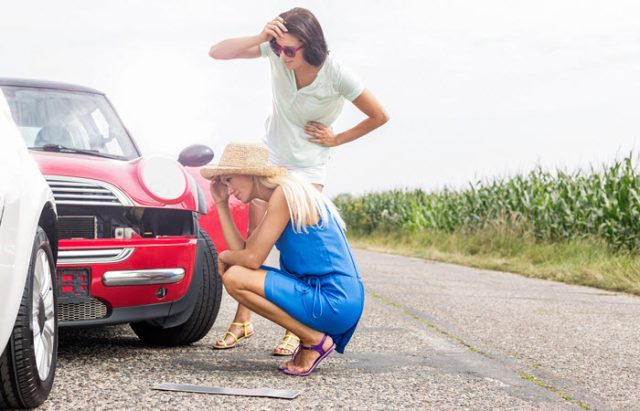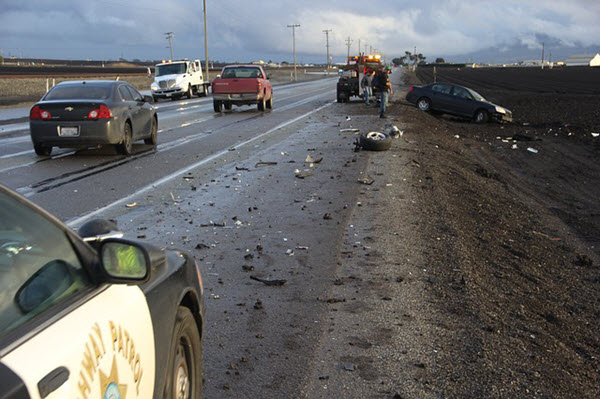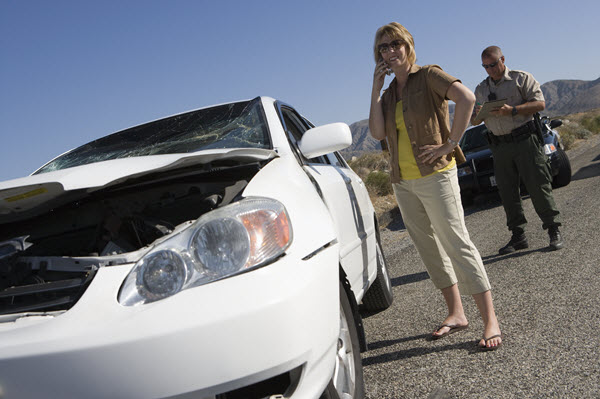How to Not Get Blamed for A Car Accident That Isn’t Your Fault

SMASH!
A sound nobody wants to hear while backing out of a parking space — it’s exactly what met my ears as an SUV met the rear passenger side of my car. Though I’d barely been moving, the impact’s volume and force meant this was much more than a fender bender.
Unhinged but unhurt, I got out to find a very upset and very remorseful fellow driver.
“It was all my fault,” she said. “I was in a hurry and didn’t see you.” She was possibly texting and distracted. Plus, considering the crumpled accordion formerly known as my fender, she was definitely going way too fast for a parking lot.
Anyone witnessing the accident or hearing the drivers’ discussion in its immediate aftermath could have passed easy judgment: she caused it.
Unfortunately, there were no witnesses and no security camera footage. And state law indicated that drivers leaving parking lot spaces must yield to oncoming traffic
I had and all was clear, meaning the SUV either cut a corner or covered an incredible amount of ground in just a few seconds.
By the time the police showed up, the other driver had gone from repentant to reticent. Her newfound reservation and composure was based on an assessment that I, too, had made. If she played her cards right, she might get away with this.
Still, the officer remarked on the extent of my car’s damage (insurance later deemed it totaled). Since the collision impacted the side of my car, it plainly pointed to the other driver speeding excessively. He listened understandingly as I reported she had already admitted fault. Leaving the scene, I was satisfied that fairness would win the day.
Two weeks later, I got the accident report which probably took 30 seconds to type. It is reductionist, to put it kindly. In the report, I am Driver/Vehicle 2.
It stated:
Driver 1 stated she was traveling west through the parking lot. Vehicle 2 began to back out of a parking space. As Vehicle 2 was backing out of the parking space, Driver 1’s vehicle collided with Vehicle 2. Driver 2 stated he was backing his vehicle out of a parking space in the parking lot area. As he was doing so, Vehicle 1 collided with his vehicle. Vehicle 1 suffered a moderate amount of damage to its front bumper, primarily near its passenger’s side. Vehicle 2 suffered a moderate amount of damage to its rear side panel on its passenger’s side.
I have determined Driver 2 [me!] to be at fault for this crash for not observing Vehicle 1 and not safely backing up.
Just like that – with a lack of witnesses and a lazy, incomplete accident report written by an officer who clearly doesn’t have a penchant for thorough paperwork – I was screwed.
Some lessons are learned the hard way. Here’s what you can do when disputing fault in a car accident case:
Roll camera clandestinely
When something unexpected like a car accident occurs, someone’s first reaction is usually an honest one. In my case, the opposite driver’s initial admittance of fault would have been game-changing evidence.
But, you ask, don’t people behave differently when they know they’re being taped? Yes, so don’t tell them.
Before leaving your vehicle, put your smartphone’s camera on and either hold it inconspicuously in your hand or stick it in your pocket. You’ll have plenty of time to amass visual evidence, but only a few seconds to try and obtain what amounts to a confession from a momentarily stunned and momentarily forthright fellow motorist. This type of evidence is what will help you win when disputing fault in a car accident case.
Corral any witnesses ASAP

Implore them to wait and speak with the police. When an accident occurs on a busy road or highway, this can be easier said than done. If an eyewitness insists upon leaving before the police arrive, snap a pic of his photo ID (or, if he refuses, his license plate) and give it to the police for follow-up.
If the accident happened in a parking lot, remind the police to ask whether closed caption surveillance video is available. Unfortunately, as in my case, sometimes there are no witnesses or camera footage.
Make sure the police comprehend what the damage to each vehicle means
Don’t expect a typical beat cop to be Sherlock Holmes. Nobody goes to the police academy to write accident reports for a living. Don’t assume the officer cares nearly as much about what happened as you do.
The illusion of expertise is another factor. Police officers see their share of wrecks and become self-proclaimed virtuosos at determining fault just by glancing at the vehicles and hearing brief statements from drivers. This frustrating mix of arrogance and ignorance can lead to police reports that are incomplete at best, incompetent at worst.
In my case, it was clear that the other driver’s car had struck me, rather than vice versa, since you can’t exactly drive the side of your car into something unless you’re doing donuts in a demolition derby.
Still, the law places the onus on a vehicle backing out of a parking space to yield. Here, what the officer clearly didn’t understand was how hard the SUV hit my car, which would have helped him realize how insanely fast it must have been traveling for a parking lot. I hadn’t yielded because I couldn’t have seen it coming.
The police report states that each car suffered “moderate” damage which is patently untrue. The SUV had a busted headlight and a banged-up bumper. My fender was so crunched that insurance later deemed it totaled.
The point: Make sure the cop not only sees the damage but understands what it means so that the report reflects fact rather than fiction.
See Also: Personal Injury Claims After A Car Accident
Stay there until the cop leaves

Despite being totaled, my car was still (barely) drivable, and the officer took my statement first. He then told me to leave with the implication that he believed my account of the other driver’s negligence.
The police report, of course, said otherwise. So, either the officer lied to my face or, more likely, the other driver put on a cunning and convincing display after I left.
Don’t take anything for granted when disputing fault in a car accident case. Stay put until the police depart, even if they say you can go.
Though nothing is foolproof, these tips can give you the best chance of avoiding blame when a car accident isn’t your fault. Safe driving, folks.
See Also: 10 Things You Didn’t Know About Your Car Insurance


